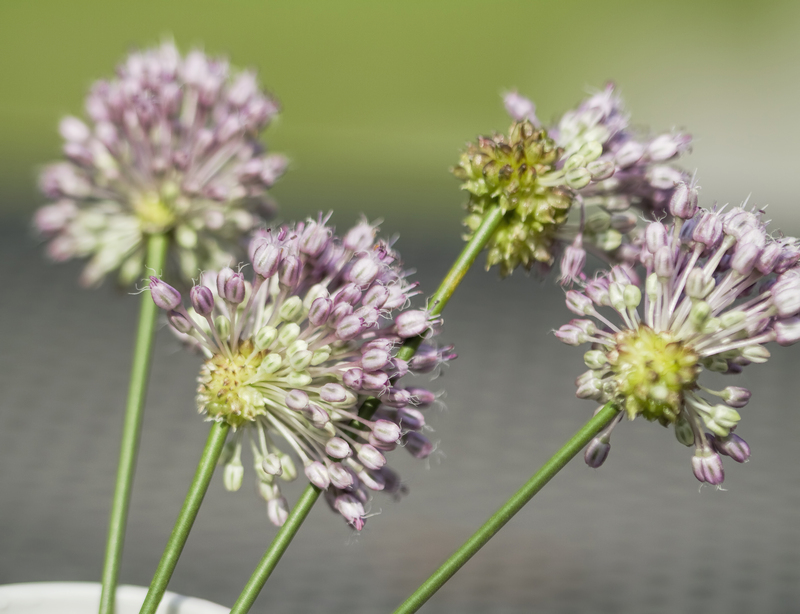Enhancing Urban Spaces with Container Gardens
Posted on 04/09/2025
Enhancing Urban Spaces with Container Gardens: The Green Revolution in City Living
Urbanization is changing the way we interact with our environment, turning once-green spaces into landscapes dominated by concrete and steel. Amid the hustle and bustle, the need for greenery and serenity has led to the rise of container gardens in cities worldwide. Container gardening is not only an aesthetic addition to urban homes and public spaces but also provides significant environmental and well-being benefits, transforming unremarkable spaces into vibrant, living sanctuaries.
What Are Container Gardens?
Container gardens are gardens cultivated in pots, tubs, boxes, or any other vessels rather than directly in the ground. They may contain flowers, vegetables, herbs, or ornamental plants and can be placed almost anywhere: balconies, rooftops, patios, window sills, and even along sidewalks. This innovative form of gardening is ideal for urban settings where space is limited and soil conditions are often poor.

Why Container Gardening is Perfect for Urban Spaces
The many advantages of container gardens in urban areas go far beyond their beauty. Here's why they have become essential elements in urban landscape design:
- Space Efficiency: Utilize vertical and small spaces for growing plants.
- Mobility: Move plants to wherever sunlight and conditions are optimal or rearrange to refresh the aesthetic.
- Soil Control: Grow plants even when ground soil is contaminated or of low quality.
- Versatility: Create gardens on balconies, rooftops, windowsills, or courtyards.
- Personalization: Customize containers and plant choices to suit any design style.
Boosting Urban Biodiversity
By introducing a variety of plant life through container gardening, city dwellers can support local pollinators such as bees, butterflies, and birds. Even in small numbers, container plants contribute to urban biodiversity, making cities more resilient and ecologically balanced.
Popular Plant Choices for Urban Container Gardens
Choosing the right plants ensures a successful container garden in urban spaces. Several criteria must be considered, including available sunlight, container size, and maintenance requirements. Some of the best options include:
- Herbs: Basil, rosemary, mint, thyme, and parsley thrive in pots and provide fresh flavors to urban kitchens.
- Flowering Plants: Petunias, geraniums, marigolds, pansies, and impatiens add vibrant color and can bloom all season.
- Vegetables: Tomatoes, peppers, lettuce, beans, and radishes grow well in spacious containers and are ideal for urban gardeners seeking to cultivate their food.
- Succulents and Cacti: Perfect for low-maintenance and drought-prone spaces, these plants suit busy city lifestyles.
- Ornamental Grasses and Small Shrubs: Add texture, movement, and structure to balcony or rooftop gardens.
Container Gardening for Urban Edible Spaces
One of the most significant trends in urban container gardens is the rise of edible gardening. Growing food in the city not only promotes sustainability but also provides access to fresh, healthy produce. From kale to strawberries, a well-planned container garden can become a mini urban farm.
Designing Urban Spaces with Container Gardens
Thoughtful container garden design can transform sterile urban environments into inviting places for relaxation, socialization, and community engagement. Here's how you can integrate container gardens into urban settings:
Residential Applications
For residents in apartments or townhouses, balcony gardens and rooftop oases offer accessible ways to enjoy nature. Use combinations of hanging baskets, railing planters, and vertical garden systems for maximum impact. Personalize with themed gardens -- think herb spirals or a mini vegetable patch.
Public Spaces and Streetscapes
Increasingly, urban planners are using container planting to beautify downtown districts, plazas, and even transit stops. Strategically placed planters can define public seating areas, create buffers from traffic, and foster a sense of community.
Business and Institutional Settings
Restaurants, hotels, schools, and offices can benefit tremendously from container gardens. Outdoor dining patios, entryways, or even indoor lobbies come alive with attractively arranged containers, improving curb appeal and environmental health.
Best Containers for Urban Gardening
Selecting the right containers is crucial for successful urban gardens. Consider:
- Material: Terra cotta, ceramic, plastic, metal, resin, or wood -- each offers different aesthetics, weight, and insulation qualities.
- Size: Choose containers large enough for plant roots but small enough to fit the intended space or be moved easily.
- Drainage: Proper drainage holes prevent waterlogging and root rot.
- Style: Match the architectural style of your space -- from modern minimalist to rustic reclaimed barrels.
Creative Recycled and Upcycled Container Ideas
The beauty of urban container gardening lies in creativity. Transform old buckets, crates, bathtub remnants, or repurposed furniture into eye-catching planters. This not only gives a unique touch to your escape but also supports environmental consciousness by reducing waste.
Practical Tips for Thriving Urban Container Gardens
Key practices can help maximize the health and beauty of your container gardens in urban spaces:
- Optimize Light: Place sun-loving plants where they'll get maximum exposure; use shade-loving varieties in less-bright spots.
- Use Quality Potting Mix: A lightweight, well-draining potting mix is essential for container success.
- Water Wisely: Urban environments can dry containers quickly, so check moisture often but avoid overwatering, which leads to root diseases.
- Feed Regularly: Potted plants use up nutrients faster, so supplement with a slow-release or liquid fertilizer as needed.
- Prune and Deadhead: Maintain healthy growth and continued blooming by removing spent flowers and trimming excess foliage.
- Rotate Plants: Move containers occasionally for even sunlight and visual variety.
Pest and Disease Management
Urban environments can pose unique pest and disease problems. Regularly inspect your plants for signs of stress or infestation. Natural remedies, such as neem oil or insecticidal soap, are ideal for eco-friendly pest control in confined city spaces.
The Environmental Impact of Container Gardens
Beyond beauty, container gardens contribute positively to urban environments by:
- Improving Air Quality: Plants absorb pollutants and release oxygen, freshening indoor and outdoor city air.
- Reducing Urban Heat: Greenery cools surroundings, helping to mitigate the "urban heat island" effect in densely built areas.
- Stormwater Management: Plants and soil in containers can absorb rainfall and reduce runoff, which is valuable in paved cityscapes.
Enhancing Wellbeing and Community Through Container Gardening
Connecting with nature by cultivating a container garden offers profound physical and psychological benefits. Gardening activities reduce stress, improve mood, and foster a sense of accomplishment. For communities, shared container gardens in public spaces encourage social interaction, pride, and stewardship of shared urban areas.
Urban Container Gardens as Community Projects
Around the world, community gardens and "adopt-a-planter" initiatives have become powerful tools for building engagement and transforming neglected city corners. With limited effort and budget, neighborhoods can create colorful, productive, and shared spaces--uplifting the entire urban experience.
Urban Container Gardening: Challenges and Solutions
While urban container gardening promises many rewards, it also comes with challenges:
- Limited Space: Overcome by vertical gardening, stacking planters, or hanging baskets.
- Accessibility: Use lightweight pots and portable designs for easier movement and maintenance.
- Weather Extremes: Insulate containers, use drought-tolerant plants, and provide windbreaks in exposed areas.
- Pollution: Protective netting and plant selection can minimize the impact of dust and pollutants.
With innovative approaches, urban dwellers can easily address these issues and enjoy lush, healthy container gardens year-round.

The Future of Urban Spaces: Greener Cities Through Container Gardens
As cities grow, the role of container gardening will only become more significant. Green roofs, living walls, and modular planter systems are just a few innovations shaping future trends. Local governments and developers recognize the vital need for green urban infrastructure and are incorporating container gardens into new designs.
Ultimately, enhancing urban spaces with container gardens invites everyone to participate in creating healthier, more beautiful, and sustainable cities--one pot at a time. Whether you're an apartment dweller, a business owner, or a city planner, embracing urban container gardening is a powerful way to reconnect with nature and transform city living for the better.
Conclusion
Container gardens present a myriad of opportunities for enhancing urban spaces. Their versatility, accessibility, and positive impact on urban ecology and well-being confirm their place as essential features of modern city life. By integrating container gardens into our homes and public arenas, we create not just greener cities, but healthier, happier communities for generations to come.
Latest Posts
Essential Orchid Care: Achieving Flowering Success
Making Your Garden a Canine-Friendly Heaven
Top 9 Ground Cover Plants to Reinvent UK Gardens
From Backyard to Battlefront: Gardens Fighting Climate Change

